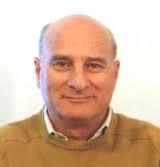 Barry A. Kosmin is on the faculty of Trinity College serving as Director of the Institute for the Study of Secularism in Society and Culture and as Professor in the Public Policy and Law program. He is the author of over 20 books and research monographs and more than 50 scholarly articles in the areas of sociology, demography, politics, philanthropy, and policy research. Additionally, Kosmin has been a Principal Investigator of the American Religious Identification Survey (ARIS) series 1990-2008 since its inception. Recently, he presented a paper at the 2010 annual meeting of the Society for the Scientific Study of Religion titled “Religion and the Intelligentsia: Post-graduate Educated Americans 1990-2008. In the paper, the researchers consider whether or not those with post-graduate degrees are more or less likely to engage in certain religious practices, such as church attendance, or hold specific religious beliefs. Notably the findings are explained in light of the shift in the number of persons attaining advanced degrees, which has risen from 6% of the adult population in 1990 to 8% in 2008.
Barry A. Kosmin is on the faculty of Trinity College serving as Director of the Institute for the Study of Secularism in Society and Culture and as Professor in the Public Policy and Law program. He is the author of over 20 books and research monographs and more than 50 scholarly articles in the areas of sociology, demography, politics, philanthropy, and policy research. Additionally, Kosmin has been a Principal Investigator of the American Religious Identification Survey (ARIS) series 1990-2008 since its inception. Recently, he presented a paper at the 2010 annual meeting of the Society for the Scientific Study of Religion titled “Religion and the Intelligentsia: Post-graduate Educated Americans 1990-2008. In the paper, the researchers consider whether or not those with post-graduate degrees are more or less likely to engage in certain religious practices, such as church attendance, or hold specific religious beliefs. Notably the findings are explained in light of the shift in the number of persons attaining advanced degrees, which has risen from 6% of the adult population in 1990 to 8% in 2008.
Writing for USA Today, Cathy Lynn Grossman offers a comparison of the findings to what many perceive to be the popularly held view:
Old wisdom: Post-graduate degrees, benchmark of the intelligentsia, lead people astray from religion and promote atheism.
New wisdom: Not so much, says a newly published study, the first ever look at religious beliefs and behavior of people with masters degrees, doctorates and professional degrees such as lawyers and physicians.
Grossman condenses the research into several key findings:
- Forget the old fear of university indoctrination in atheism or secularism. “The elite today look more like their parents than their professors.” While 82% of all Americans said in 2008 that they believe in a personal God or a high power, so did 85% of elites.
- They also more closely resemble most Americans. In the past 18 years there’s been an 80% jump in the number people with post-graduate degrees, up from 6% of the USA in 1990 to 8% in 2008. Joining the ranks were “more women and more southerners — the two groups with the highest levels of religious commitment.”
- Elites share the majority’s doubts about evolution although they are still more likely to support it with 48% saying humans evolved from earlier species of animals, compared to 38% of the nation overall.
- Elites have high levels of household membership in a house of worship: 63% say they belong compared to 54% of overall. “They have higher incomes and can afford to join and to put more in the collection plate.”
So What?
Whether or not continuing one’s education beyond a certain level has an adverse effect or not on one’s religious beliefs and practices matters. It has considerable implications for ministry and higher education.
- Have you heard the argument that the process of attaining advanced degrees (referred to by Kosmin as elites) tends to move people away from their faith?
- How does Kosmin’s research shape or help reshape your view of the correlation between high levels of education and religiosity?
- Does your personal knowledge of those who have attained advanced degrees (self, friends, family and co-workers) challenge or offer anecdotal support to the findings?